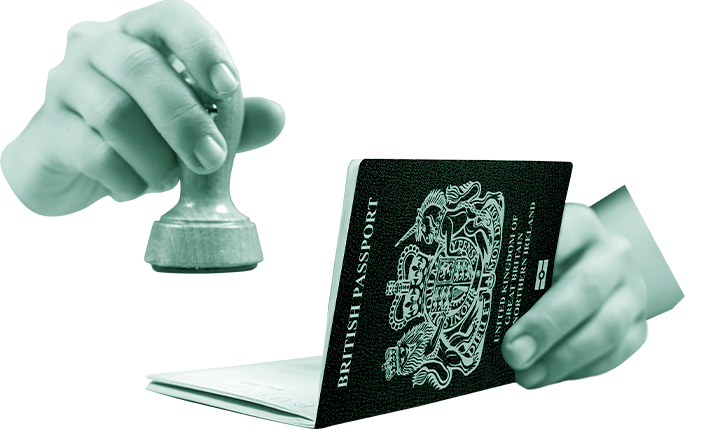Having a genuine need for a temporary worker.
Temporary Worker Sponsor Licence

Temporary Worker Sponsor Licence
Navigating the complexities of sponsoring a Temporary Worker in the UK demands a thorough understanding of the Temporary Worker Sponsor Licence. This process involves meticulous attention to detail, from eligibility criteria to compliance protocols. UK employers looking to bring in temporary workers must carefully navigate through a series of steps and requirements to ensure legal compliance. Let’s delve deeper into the nuances of this important document and its significance in the UK’s labour market.
Overview of the Temporary Worker Sponsor Licence
The Temporary Worker Sponsor Licence is a crucial document for UK employers looking to hire temporary workers from overseas. This licence allows organisations to sponsor individuals for a Temporary Worker visa, enabling them to work legally in the UK. By obtaining this licence, employers take on the responsibility of ensuring that sponsored workers comply with UK immigration laws. Understanding the nuances of this licence is essential for seamless workforce management and compliance with regulations.
Defining the Temporary Worker Sponsor Licence
The Temporary Worker Sponsor Licence is a permit issued by the UK government to organisations wishing to employ individuals from outside the country on a temporary basis. This licence allows companies to sponsor skilled workers to fill specific job roles that the local workforce cannot fill. It is a crucial document for employers looking to bring in overseas talent for a limited period, ensuring compliance with UK immigration laws.
Eligibility Criteria for Sponsoring Employers
To be eligible for a Temporary Worker Sponsor Licence in the UK, employers must meet specific criteria. They should have a genuine need for the role, operate legally in the UK, and demonstrate the capacity to fulfil sponsorship duties. Employers must also adhere to immigration laws and ensure compliance with all regulations. Moreover, they should have no history of immigration offences or breaches. These stringent criteria are in place to maintain the integrity of the sponsorship system and protect the rights of temporary workers.

Essential Requirements to Become a Sponsor
Sponsors must also demonstrate the financial means to support sponsored workers and meet all obligations under the sponsorship agreement. Understanding these fundamental criteria is crucial when applying for a Temporary Worker Sponsor Licence.
To become a sponsor for a Temporary Worker Sponsor Licence in the UK, essential requirements include:
Understanding the Responsibility of Sponsors
Sponsors hold the responsibility of complying with regulations set forth by the UK government, ensuring their sponsored workers follow visa conditions. They must monitor and report any changes in employment status or personal information promptly.
Failure to meet obligations could lead to revocation of the Temporary Worker Sponsor licence and potential legal repercussions. Regular audits and record-keeping are essential to maintain compliance and support the integrity of the sponsorship system.
Step-by-Step Guide to Applying for a Temporary Worker Sponsor Licence
Preparing Your Organisation for the Application involves ensuring you meet all eligibility criteria and have the necessary documents ready.
Submitting Your Sponsor Licence Application requires filling in the online form accurately and paying the applicable fees. Following these steps carefully is crucial for a successful application process.
Preparing Your Organisation for the Application
Ensure your organisation meets all requirements for the Temporary Worker Sponsor Licence application. Verify that your account information is up to date and accurate. Review financial means and governing regulations to align with UK standards. Check if your organisation is in accordance with sponsorship laws and has the necessary resources to sponsor a temporary worker. Prepare all mandatory documents and be ready to provide extensive personal information for the application process. Establish a system to manage the sponsorship efficiently.
Submitting Your Sponsor Licence Application
When submitting your sponsor licence application, ensure all necessary documents are accurately completed. The submission must be error-free and meet the Home Office requirements precisely.
Pay close attention to details such as account information and registration certificates.
Inaccuracies might result in delays or rejection. Your Application should align with the UK immigration laws and follow the guidelines set by the governing body. Missing any crucial details can impact the approval process significantly.
Key Documents Required for the Application Process
Several key documents are essential when applying for a temporary worker sponsor licence in the UK. These include the certificate of sponsorship assigned to each worker, proof of the organisations financial means to support sponsored workers, and details of the applicant’s healthcare arrangements.
Additionally, documentation proving the sponsor’s eligibility and compliance with UK
immigration laws is crucial for a successful application. Ensuring the accurate submission of these key documents is vital for a smooth processing of the sponsor licence application.
Common Pitfalls to Avoid in Documentation
Insufficient documentation can lead to delays or even rejection. Ensure all required papers are current and accurate. Missing signatures or outdated forms may cause setbacks.
Double-check all details before submission to avoid complications. Failure to adhere to guidelines may result in a failed application.
Stay informed about the latest documentation requirements to stay compliant. Navigating Through the Sponsorship Management System (SMS) The Sponsorship Management System (SMS) is a vital tool for managing your Temporary Worker Sponsor Licence.
Within the SMS, sponsors can allocate Certificates of Sponsorship and oversee the visa status of sponsored workers. It is crucial for employers to familiarise themselves with this system to ensure compliance with UK immigration laws and regulations. By using the SMS effectively, sponsors can navigate through the complexities of sponsorship management seamlessly.

An Introduction to the SMS
The SMS (Sponsorship Management System) is an online platform used by organisations with a Temporary Worker Sponsor Licence to manage their licence and sponsorship activities. It provides access to account information, enables the assignment of Certificates of Sponsorship (CoS), and facilitates compliance with sponsor duties.
Organisations must nominate a Level 1 user to manage the SMS, who will have full access to the system. Additional Level 2 users can be appointed with restricted access. The SMS allows users to create and manage sponsorship records, report changes in migrant circumstances, and track compliance obligations.
It is crucial for organisations to maintain accurate and up-to-date information in the SMS to ensure compliance with Home Office requirements. Failure to do so can result in licence suspension or revocation. Regular monitoring and review of the SMS account information is essential to ensure ongoing compliance with sponsor duties and obligations.
Managing Your Licence and Certificates of Sponsorship
Once an organisation obtains a Temporary Worker Sponsor Licence, it is responsible for managing the licence and the allocation of Certificates of Sponsorship (CoS) to overseas nationals. The licence allows the organisation to issue CoS to individuals who meet the eligibility criteria for one of the temporary worker routes. The CoS is a unique reference number that is used by the individual to apply for a visa from UK Visas and Immigration (UKVI).
Organisations must keep track of the number of CoS available to them and ensure they are used appropriately. They must also maintain accurate records of the sponsored workers and their employment details. This includes monitoring the workers’ compliance with their visa conditions and reporting any changes or updates to UKVI. Failure to comply with the licence and sponsorship requirements can result in penalties, licence suspension, or revocation. It is essential for organisations to have robust systems and processes in place to effectively manage their licence and sponsorship obligations.
Compliance and Keeping Your Licence
Compliance is a crucial aspect of maintaining a Temporary Worker Sponsor Licence. Organisations must adhere to the Home Office’s requirements and meet their sponsor duties to ensure ongoing compliance.
This includes monitoring and reporting changes in migrant circumstances, keeping accurate records, and maintaining contact with sponsored workers. Failure to comply with these obligations can result in penalties, licence suspension, or revocation.
Organisations must also be prepared for Home Office compliance visits, where officials may assess their compliance with the Immigration Rules and sponsorship duties. It is important to have robust systems and processes in place to demonstrate compliance and ensure the smooth operation of the licence.

Understanding Home Office Compliance Visits
The Home Office conducts compliance visits to organisations holding Temporary Worker Sponsor Licences to ensure compliance with the Immigration Rules and sponsorship obligations. These
visits are designed to assess the organisation’s systems and processes for managing sponsored workers and to verify the accuracy of the information provided in the licence application.
During a compliance visit, Home Office officials may request to see documentation, conduct interviews with key personnel, and assess the organisation’s compliance with record-keeping and reporting requirements. It is essential for organisations to be prepared for these visits and to have robust systems in place to demonstrate compliance.
Failure to comply with the Home Office’s requirements during a compliance visit can result in penalties, licence suspension, or revocation. It is crucial for organisations to maintain accurate records, keep up-to-date with changes in the Immigration Rules, and regularly review and update their systems and processes to ensure ongoing compliance.
Renewing Your Sponsor Licence
A Temporary Worker Sponsor Licence is valid for an initial period of 4 years. To continue sponsoring temporary workers, organisations must renew their licence before it expires.
The renewal process involves submitting a new application to UK Visas and Immigration (UKVI) and paying the relevant fees. It is essential to ensure that all information provided in the renewal application is accurate and up-to-date. Before renewing the licence, organisations should review their systems and processes to ensure ongoing compliance with the Immigration Rules and sponsor duties. This includes keeping accurate records, monitoring sponsored workers’ compliance with visa conditions, and reporting any changes or updates to UKVI.
Failure to renew the licence on time can result in the loss of sponsorship privileges and the inability to assign new Certificates of Sponsorship (CoS) to overseas nationals. It is crucial to plan ahead and submit the renewal application in a timely manner to avoid any disruption to the organisation’s sponsorship activities.

Costs Involved in Obtaining a Sponsor Licence
Obtaining a Temporary Worker Sponsor Licence involves certain costs that organisations need to be aware of. These costs include the application fee and fees for issuing Certificates of Sponsorship (CoS).
The application fee for a Temporary Worker Sponsor Licence is £536. However, the fee may vary depending on the size and status of the organisation. For small or charitable sponsors, the fee remains £536, while medium or large sponsors pay £1476.
In addition to the licence fee, there is a fee of £21 for each CoS issued under the Temporary Worker route. It is important for organisations to budget for these costs when planning to obtain a sponsor licence and sponsor overseas workers.
Breakdown of Government Fees
The government fees associated with obtaining and maintaining a Temporary Worker Sponsor Licence consist of an application fee and fees for Certificates of Sponsorship (CoS) issuance. The specific amount depends on the size and status of the organisation.
Here is a breakdown of the government fees for a Temporary Worker Sponsor Licence:
Licence Application Fee
- £536 (small or charitable sponsors)
- £1476 (medium or large sponsors)
- £21 per CoS
The licence application fee and CoS fees are payable to UK Visas and Immigration (UKVI) at the time of Application and issuance, respectively. It is essential for organisations to budget for these government fees when planning to obtain a sponsor licence and sponsor overseas workers.

Additional Costs to Consider
In addition to the government fees, organisations should consider additional costs associated with obtaining and maintaining a Temporary Worker Sponsor Licence.
These additional costs may include legal fees if professional advice or assistance is sought during the application process or for ongoing compliance. It is advisable to consult with immigration experts to ensure that all legal requirements are met and to maximise the chances of a successful application.
Organisations should also consider costs related to recruitment and HR processes, such as advertising job vacancies, conducting interviews, and conducting background checks on sponsored workers.
It is important to carefully budget for these additional costs to ensure that the organisation can effectively manage the sponsorship process and meet all requirements for sponsoring temporary workers.
Sponsoring a Temporary Worker: The Process
It is important to follow the process carefully and ensure compliance with all requirements to increase the chances of a successful sponsorship application.
Sponsoring a temporary worker involves several steps and processes. Here is an overview of the sponsorship process for a Temporary Worker Sponsor Licence:
Assigning Certificates of Sponsorship
Once an organisation holds a Temporary Worker Sponsor Licence, it can assign Certificates of Sponsorship (CoS) to eligible overseas nationals.
To assign a CoS, the organisation must first ensure that the individual meets the eligibility criteria for the specific Temporary Worker route. The CoS is a unique reference number that the individual will need to include in their visa application to UK Visas and Immigration (UKVI).
Organisations must keep track of the number of available CoS and use them appropriately. It is crucial to assign a CoS only to individuals who meet the requirements and will be employed in suitable roles.
The CoS plays a vital role in the visa application process for temporary workers. Organisations must accurately assign and manage CoS to ensure compliance with the Temporary Worker Sponsor Licence and the Immigration Rules.
Visa Application Process for Sponsored Workers
Once an overseas national has been assigned a Certificate of Sponsorship (CoS) under a Temporary Worker route, they can proceed with the visa application process. The visa application process for sponsored workers involves several steps:
- Application form: The individual must complete the relevant visa application form, providing accurate and up-to-date information.
- Supporting documents: The individual must gather and submit the necessary supporting documents, such as a valid passport, evidence of sponsorship, and proof of financial means.
- Biometrics: The individual may need to attend a biometric appointment to provide their fingerprints and photograph.
- Visa fee: The individual must pay the applicable visa fee at the time of Application.
- Decision: UK Visas and Immigration (UKVI) will review the Application, including the supporting documents, and make a decision on whether to grant the visa.
It is important for sponsored workers to carefully follow the visa application process and provide all required documentation to increase the chances of a successful outcome.
Addressing Common Challenges and Solutions
Sponsoring temporary workers can present various challenges. Here are some common challenges and their potential solutions:
- Delays in processing: Delays in the application or visa processing can occur. To address this,
organisations should submit complete and accurate applications and ensure timely
submission of all required documents. - Refusals: Visa refusals can happen for various reasons. It is essential to carefully review
the refusal reasons and seek professional advice to rectify any issues and improve future
applications. - Compliance issues: Maintaining compliance with sponsor duties can be challenging. Regular
monitoring, record-keeping, and training can help address compliance issues and ensure
ongoing adherence to the Immigration Rules.
By proactively addressing challenges and seeking professional advice when needed, organisations can navigate the sponsorship process more effectively and increase the chances of a successful outcome.
How to Appeal Against a Decision
If an organisation disagrees with a decision made by UK Visas and Immigration (UKVI), such as a refusal or revocation of a sponsor licence, they may have the option to appeal the decision. The appeal process involves submitting an appeal form and supporting documents to the designated authority within the specified timeframe. It is important to carefully review the reasons for the decision and provide strong grounds for the appeal.
Seeking professional advice from immigration experts can be beneficial when preparing an appeal. They can provide guidance on the appeal process, help gather relevant evidence, and present a compelling case to support the organisation’s position.
Organisations should be aware of the appeal deadlines and ensure that all necessary documents and information are submitted in a timely manner to maximise the chances of a successful appeal.
Best Practices for Sponsor Licence Holders
To maintain compliance and ensure the smooth operation of a Temporary Worker Sponsor Licence, organisations should follow best practices:
- Regular training: Provide training to key personnel on sponsor duties, compliance
requirements, and changes in the Immigration Rules. - Robust record-keeping: Maintain accurate records of sponsored workers, including their employment details, visa status, and compliance with visa conditions.
- Ongoing monitoring: Regularly review and update systems and processes to
ensure ongoing compliance with sponsor duties and obligations. - Professional advice: Seek advice from immigration experts to stay informed about changes in the immigration law and receive guidance on best practices.
By implementing these best practices, organisations can effectively manage their sponsorship obligations and minimise the risk of penalties or licence suspension.
Maintaining Compliance with UK Immigration Laws
To maintain compliance with UK immigration laws, organisations with a Temporary Worker Sponsor Licence must fulfill their sponsor duties and responsibilities. This includes monitoring their migrant workforce, complying with record-keeping and reporting obligations, and ensuring that they do not pose a threat to immigration control. They must also be able to demonstrate their compliance with the various duties associated with being a licensed sponsor. This can be achieved by having robust recruitment procedures and HR practices in place, as well as regularly auditing their HR and recruitment systems and procedures. It is important for organisations to stay updated with any changes in UK immigration laws and regulations to ensure ongoing compliance.

Strategies for Successful Sponsorship Management
Successful sponsorship management for a Temporary Worker Sponsor Licence involves careful planning and implementation of strategies. Some key strategies include:
- Clearly defining roles and responsibilities: Assigning key personnel to manage the
sponsorship process and liaise with UKVI. This includes having an Authorising Officer, Key Contact, and Level 1 user. - Training and briefing staff: Providing training and briefings to staff on their compliance duties and responsibilities as sponsors, including the UKVI & ‘genuineness’; test and assessing prospective employees against the points criteria.
- Maintaining accurate records: Ensuring thorough record-keeping and reporting
obligations are met, including keeping track of migrant workers and their visa status, as well as maintaining documentation related to the sponsorship process. - Regular audits and reviews: Conducting regular audits of HR and recruitment systems and procedures to ensure ongoing compliance and identify areas for improvement.
- Seeking professional advice: Engaging with immigration experts, such as Davidson Morris, to navigate the complex rules and requirements of the Temporary Worker Sponsor Licence and ensure successful sponsorship management.
- By implementing these strategies, organisations can effectively manage their sponsorship responsibilities and increase the likelihood of a successful outcome.
Conclusion
In conclusion, obtaining a Temporary Worker Sponsor Licence in the UK is a structured process that requires thorough understanding and adherence to guidelines. By meeting the eligibility criteria and fulfilling essential requirements, employers can navigate the application process successfully.
Maintaining compliance, managing certificates of sponsorship, and addressing common challenges are crucial for upholding the licence. Understanding the costs involved, preparing key documents, and engaging with the Sponsorship Management System are integral steps to ensure smooth operations. By following best practices, small businesses can also benefit from sponsoring temporary workers and contribute to a diverse workforce in the UK.
Let’s Work
Together
Get in touch with us today to discuss how
we can help you solve your problem.



